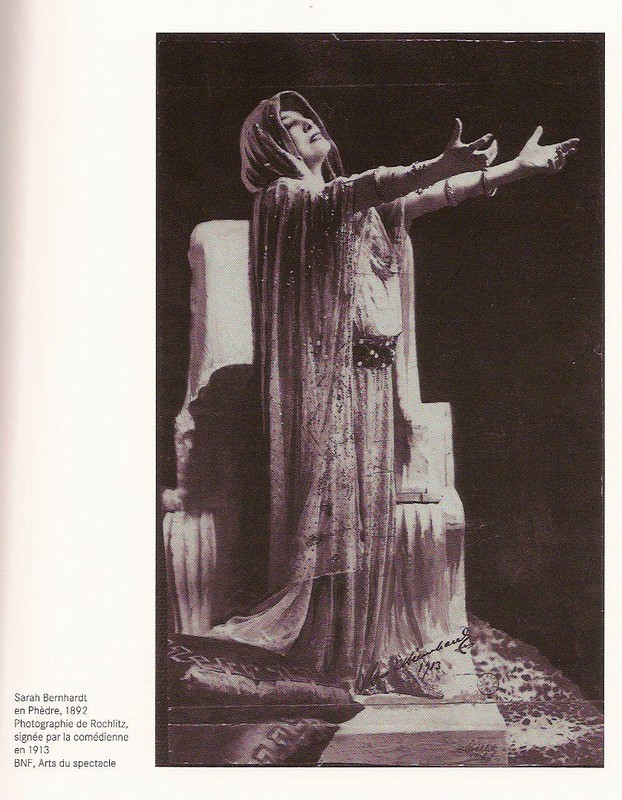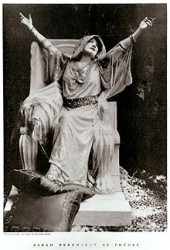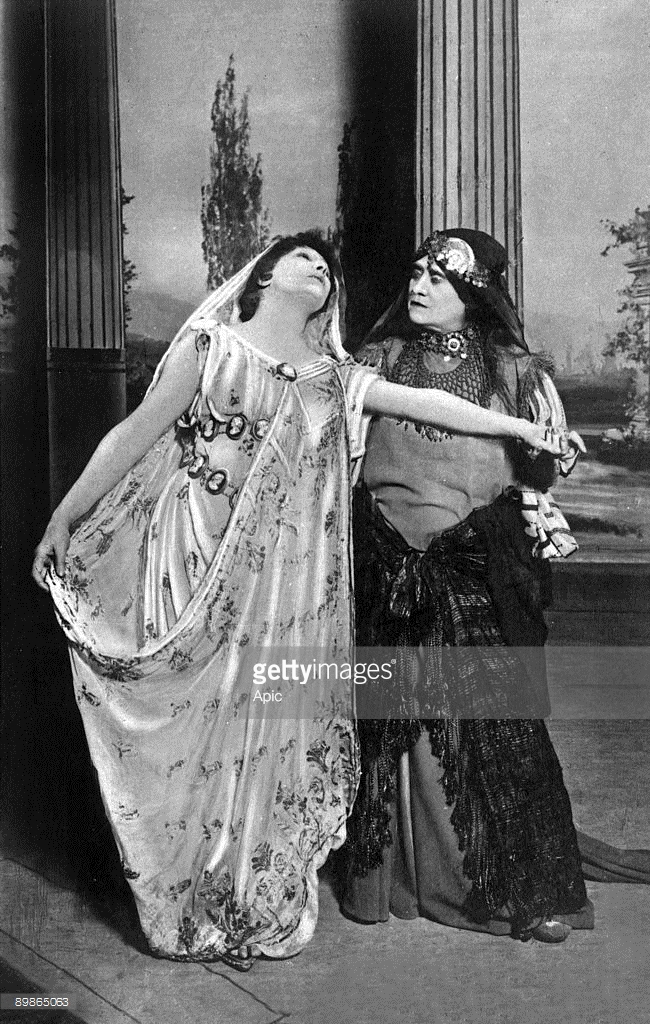 
 字體:小 中 大
字體:小 中 大 |
|
|
|
| 2016/12/18 20:57:13瀏覽1228|回應0|推薦1 | |
引用文章【書摘】蓋爾芒特家那邊—拉貝瑪 (About la Berma) 6
Act 1. Following Theseus's six-month absence, his son Hippolytus tells his tutor Theramenes of his intention to leave Troezen in search of his father. When pressed by Theramenes, he reveals that the real motive is his forbidden love for Aricia, sole survivor of the royal house supplanted by Theseus and under a vow of chastity against her will. During her husband's absence, Phèdre has become consumed by an illicit but overpowering passion for her stepson Hippolytus, which she has kept as a dark secret. Close to death and reeling about half-dementedly, under pressure from her old nurse Oenone she explains her state, on condition that she be permitted to die rather than face dishonour. The death of Theseus is announced with the news that his succession is in dispute. Oenone urges her mistress that, since her love for her stepson is now legitimate, she should form an alliance with him, if only for the future benefit of the infant son of her own flesh. Act 2. With fresh hope for her liberty, Aricia reveals to her maidservant Ismène her feelings towards Hippolytus, who promptly appears to declare his love for her. Their discourse is interrupted by Phèdre, who distraughtly pleads for the rights of her infant son, explaining her coldness and personal despair. Suddenly entering a trance-like state overcome by emotion, she involuntarily confesses her hidden passions to her horrified dumb-struck stepson. Sensing rejection, she leaves in a wild frenzy, demanding Hippolytus' sword to end her torment. Theramenes brings news to Hippolytus that Theseus might still be alive. Act 3. In desperation Phèdre sends word to Hippolytus inviting him to share the crown of Athens. However, Oenone brings her the devastating news that Theseus has returned in perfect health. To avert Phèdre's deathwish and her possible betrayal by Hippolytus, Oenone urges that a story should be concocted around his abandoned sword. Seeing Hippolytus by Theseus' side, Phèdre grants Oenone free rein. After his long period in captivity, Theseus is surprised by the cold reception from his wife and son, each anxious to conceal their passions: Phèdre, consumed by guilt; and Hippolytus, anxious to distance himself from his stepmother's advances, but unable to tell his father of his love for Aricia. Act 4. Theseus has just been told by Oenone that Hippolytus has attempted to take Phèdre by force. Overcome by rage, Theseus banishes Hippolytus and invokes the god Neptune, who has promised to grant any wish of Theseus, to avenge him by his son's death. Protesting his innocence, Hippolytus discloses his secret love for Aricia to his incredulous father and leaves in despair. Fearing that she might be guilty for Hippolytus' death, Phèdre determines to reveal the truth to her husband, until she is told of Hippolytus' love for Aricia. Consumed by jealousy, she refuses to defend Hippolytus further, leaving his father's curse to run its course. When Oenone tries to make light of her mistress's illicit love, Phèdre in a towering rage accuses her of being a poisonous scheming monster and banishes her from her presence. Act 5. Hippolytus takes his leave of Aricia, promising to marry her in a temple outside Troezen. On witnessing the tenderness of their parting, Theseus begins to have doubts about his son's guilt. He decides to question Oenone, but it is too late: Oenone has thrown herself to the waves. Theramenes brings news of his son's death: Hippolytus' departing chariot has been interrupted by a terrifying horned monster rising from the waves; mortally wounded by Hippolytus, its death throes drive his horses into a wild frenzy; in their flight, the chariot is dashed against the rocks and their master dragged helplessly to his death. In the closing scene, Phèdre, now calm, appears before Theseus to confess her guilt and to confirm Hippolytus's innocence. She finally succumbs to the effects of a self-administered draught of Medean poison, taken to rid the world of her impurity. As an act of atonement and in respect for his son's parting promise, Theseus pardons Aricia and adopts her as his daughter. |
|
| ( 知識學習|其他 ) |















